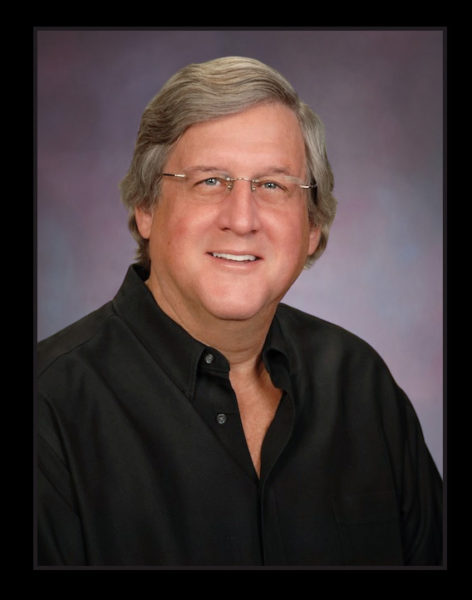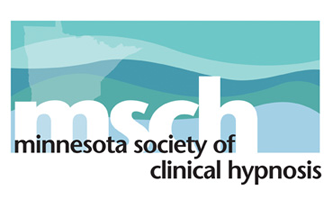The Minnesota Society for Clinical Hypnosis is delighted to welcome Dr. Michael Yapko as our speaker for the 2021 MSCH Annual Conference. Dr. Yapko will present on “The Discriminating Therapist: Hypnosis in Enhancing Decision-Making.”

| June 17th, 2021 | 6:00-9:00 p.m. CST |
| June 18 & 19th, 2021 | 9:00 a.m. – 3:00 p.m. CST |
| CEUs: | 12.5 hours* |
| Location: | Zoom |
| Registration | Click Here to Register! |
*If you are able to join us “live” for the entire workshop, the CME/CEU credits are calculated up to 12.5 credit hours. To receive the full 12.5 credit hours you must be in attendance at the live workshop for the full duration of the live workshop. If you are not able to attend the live workshop or are only able to attend part of the live workshop you may watch the recording for two weeks after June 19th, and the CME/CEU credits will be calculated up to 8 credit hours.
MSCH 2021 Annual Conference
The Discriminating Therapist: Hypnosis in Enhancing Decision-Making
Description
The Refined Workshop is for ANYONE who has completed an ASCH approved Level 1 Workshop. Our 2021 virtual workshop features Dr. Michael Yapko. This is an inclusive workshop for anyone who has completed Level 1.
In this three-day workshop based on Dr. Yapko’s recent book, “The Discriminating Therapist: Asking “How” Questions, Making Distinctions, and Finding Direction in Therapy,” we will look at people through the lens of cognitive style and HOW they make the choices they make. Instead of following the therapy tradition of analyzing why someone makes the choices they make, The Discriminating Therapist focuses on how people choose. We will especially focus on what they failed to either notice or discriminate in their global response to some circumstance. From this gentler perspective about people’s problems, we can focus on the roles of missing skills or incorrect information relevant to making better decisions instead of simply pathologizing people. Hypnosis then becomes an invaluable tool for shifting the client’s focus to what is relevant and effective while also mobilizing the resources necessary to make and implement good decisions. Through carefully constructed “how” questions that reveal the client’s ineffective decision-making framework, the goals of therapy quickly become clearer and the likelihood of hitting well-defined therapy targets with well-structured hypnosis sessions increases.
Objectives
Upon completion of this educational activity, learners should be able to:
- Recognize cognitive style and its effect on experience in general and symptomatic experience in particular;
- Identify the role of global cognitions in client problems;
- Relate how a low tolerance for ambiguity increases the likelihood of poor decision-making;
- Ask “How” questions that identify the client’s experiential deficits (i.e., missing or incorrect information that work against his or her effective decision-making);
- Recognize how a therapist’s cognitive style may hinder treatment results;
- Motivate the client to make key distinctions that regulate decision-making related to his or her presenting problems;
- Identify and articulate discrimination criteria that help teach discrimination strategies;
- Recognize how identifying more possible solutions to the client’s problem may prevent him or her from implementing them;
- Design and deliver hypnosis sessions to teach discrimination strategies as they relate to more effective decision-making.
Biography
Michael D. Yapko, PhD, is a clinical psychologist residing near San Diego, California. He is internationally recognized for his work in advancing brief, active treatments for depression and applications of clinical hypnosis in outcome-focused psychotherapies. He routinely teaches to professional audiences all over the world, having been invited to present his innovative ideas and methods to colleagues in more than 30 countries across six continents, and all over the United States. Dr. Yapko is the author of 15 books and editor of three others, as well as numerous book chapters and articles on the subjects of the brief therapy of depression and the use of clinical hypnosis in strategic psychotherapies. His books include his classic text on hypnosis, Trancework: An Introduction to the Practice of Clinical Hypnosis, now in its 5th edition, as well as The Discriminating Therapist, Taking Hypnosis to the Next Level, Depression is Contagious, and Treating Depression with Hypnosis. Dr. Yapko is a Fellow of the American Psychological Association (Div. 30), a Fellow of the American Society of Clinical Hypnosis, and a member of the International Society of Hypnosis. He is a recipient of lifetime achievement awards from the American Psychological Association’s Division 30, the International Society of Hypnosis, and The Milton H. Erickson Foundation. More information about Dr. Yapko’s work is available on his website: www.yapko.com
Eligibility and Target Audience
Persons licensed or registered by the state/province in which they practice, without any license or practice restrictions AND hold a Doctoral degree in dentistry, medicine, nursing, osteopathy, psychology, chiropractic, or a similar health care field OR hold a Master’s degree in marriage and family therapy, nursing, psychology, social work, or a similar health care field OR hold a Bachelor’s degree (B.A., B.S., B.N.) or equivalent terminal degree (i.e., is a graduate of a 4-year terminal training program which is directly related to their field of practice; AND is practicing in the field of nursing, acupuncture, physician assistant, physical therapy, occupational therapy, speech therapy, pastoral care, chemical dependency treatment, or in a similar health care field.
This conference is ideal for health professionals who have had previous formal training in clinical hypnosis. Participants should have previous experience in performing hypnotic inductions and facilitating hypnotic phenomena.
Schedule (all times are CST)
Note: The schedule should be viewed as malleable; it may be modified as the program unfolds
Thursday, June 17th, 6:00 - 9:00 p.m. (CST) 6:00-7:30 p.m. Conventional wisdom is often contradictory The social climate, global cognition and cognitive biases Discrimination strategies in therapy – and in life 7:30 – 7:45 a.m. Break 7:45 – 9:00 a.m. Group hypnosis: Making discriminations with insight Debrief and deconstruct the session Friday, June 18th, 9:00 a.m. - 3:00 p.m. (CST) 9:00 – 10:30 a.m. Global cognitive style, problems, and implications for treatment 10:30-10:45 a.m. Break 10:45-12:00 a.m. Group exercise: Assessing controllability as a therapeutic discrimination issue Group exercise: Identifying discrimination issues from interview clips The “how” question in action 12:00-1:00 a.m. Lunch break 1:00-3:00 a.m. Watching it Work: A Video Demonstration: The Case of Myra: How poor discriminations and bad decisions make depression worse Follow-up information and deconstruction of the session Saturday, June 19th, 9:00 a.m. - 3:00 p.m. (CST) 9:00-10:30 a.m. 1:1 Exercise: Utilizing hypnosis to address your partner’s discrimination issue Debrief the exercise 10:30-10:45 a.m. Break 10:45-12:00 a.m. Decision Making and Choice Architecture Framing effects on choice Group hypnosis: Enhancing decision-making Deconstruct and debrief the session 12:00-1:00 a.m. Lunch Break 1:00- 2:45 a.m. 1:1 Exercise: Hypnosis to help your partner with a decision 2:45 -3:00 a.m. Q & A Summary and Closure
